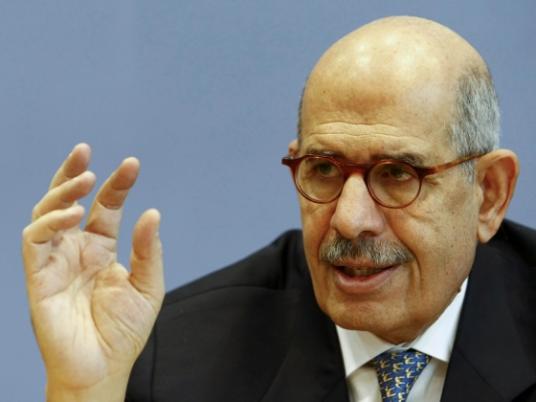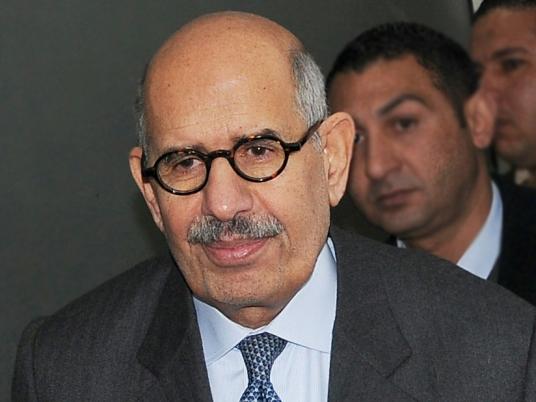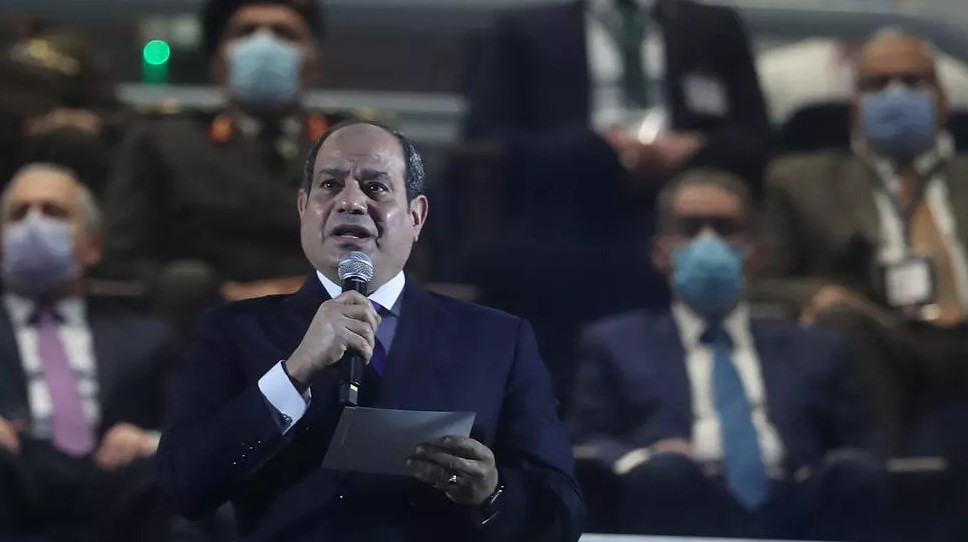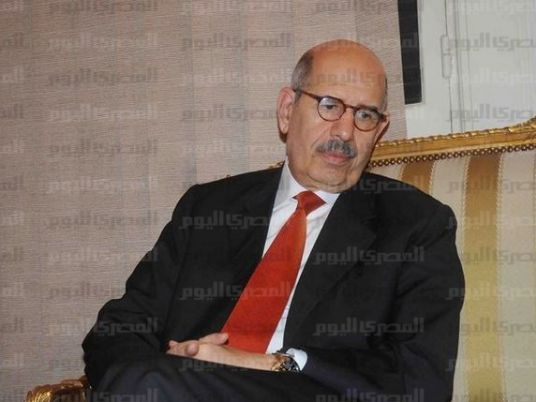
Mohamed ElBaradei on Friday suggested that the newly elected People's Assembly elect an interim president to preside over the remainder of the transitional period.
The proposal is part of a five-point initiative the former International Atomic Energy Agency head outlined on his Twitter account, designed to shorten the transitional period and facilitate the ruling Supreme Council of the Armed Forces' withdrawal from government.
ElBaradei, who many young revolutionaries see as the spiritual father of the 25 January revolution, also wrote that elections for the upper house of Parliament, the Shura Council, would be a huge waste of time and money.
“The Shura Council does not have any power and most likely will be canceled in the new constitution,” he wrote.
Government authorities have scheduled Shura Council elections to be held in two phases, on 29 and 30 January and 14 and 15 February. Runoffs for the first stage are scheduled for 7 February and the second stage for 22 February.
“The logical sequence in the coming period should be: the People's Assembly selects an interim president, forms a constituent assembly to draft the new constitution, [and] the new constitution determines the political system and ensures a civil state, rights and freedoms,” ElBaradei wrote.
ElBaradei concluded his initiative by writing: “After one year of confusion, it's time to agree on correcting the path.”
In a tweet in English on Thursday, ElBaradei wrote: “Ball now in parliament court to implement rev goals eg laws re independent judiciary & media,military trials,emergency law. Time to deliver.” [sic]
ElBaradei's initiative is similar to the demands of many young revolutionaries who are now demanding the SCAF turn over power to the Freedom and Justice Party's Saad al-Katatny, the newly elected speaker of the People's Assembly, which is the only elected authority in Egypt at the moment.
The SCAF has repeatedly stressed it will hand over power to a civilian government after presidential elections, or by 30 June at the latest.
Some revolutionaries doubt the military rulers' pledge to leave power, citing the slow pace of reforms enacted during the transitional period.



